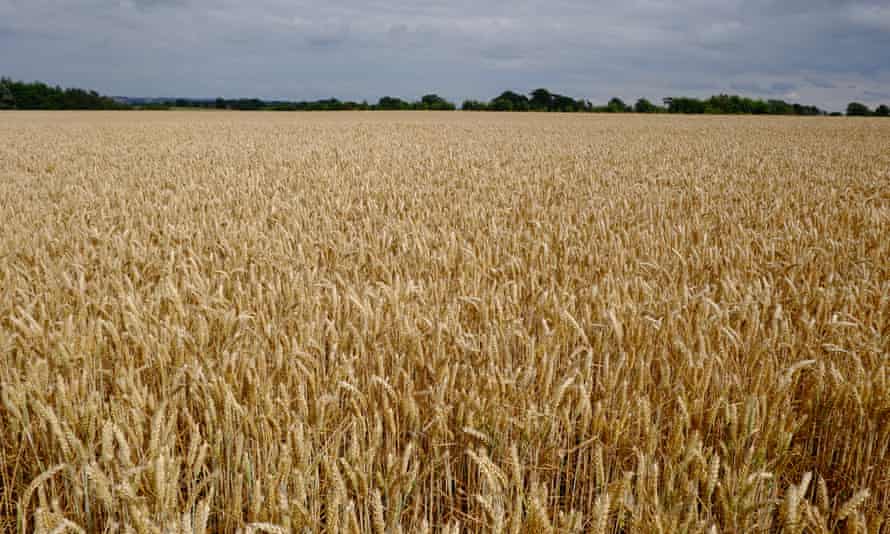Country diary: in the Cotswolds, the only seas are made of wheat
Cold Aston, Gloucestershire: The stalks crackle like crickets and begin to make a sound like applause as the sun gleams out

Every time, the Cotswolds surprises me twice. First, how quiet most of it is. With the crowds of repute magnetised to disparate skiffs of activity, most of the territory between them is largely empty, at least to my eyes. Second, how hilly it feels. It shouldn’t be a surprise: the “wold” of the name denotes an area of upland, or rolling ground. It’s not the Highlands, but as a literal middle ground between where I live and to where I gravitate, it’s appealing.
I can’t cope with flat places. I find a horizon abounding with level sightlines truly unsettling. It doesn’t take much to redress: the twinkle of a farmhouse atop the roll of land above, a village caught in the valley below, the sense of things subtly higher and lower around you quells my mind with a comforting, three-dimensional space, rather than the linear flatness of the east. It’s akin to claustrophobia: horizontophobia, if you like. At sea, I imagine I’d trade rough for flat any day. Here, though, the only seas are made of wheat.
We walk through one such field on an afternoon of humid light. The sky is electric grey and the wind sends the wheat into eddying whirls. As if hypnotised by it, a red kite keens and wheels above a field to the north. We surprise a hare, which in turn surprises us. We try to estimate the number of stalks in the field, and fail.
The stooped village of Notgrove emerges in hard greys from voluminous summer trees; then we turn back, and revisit the field. A footpath sign is bewilderingly studded with arrows pointing to every directional plane – a reminder that this area will always be caught in complexity balanced between nature, the farmer and the tourist.
But then the sun comes out. And something odd happens that strangely unites all three in thrall: the wheat starts to crackle. At first I think it’s insects: lively crickets, or the local scurry of small mammals. But the light stiffens and the whole field – millions, billions of stalks – begins to make a sound like applause. It sweeps through the field, then is gone: a sonic flourish, the way a squall paints ripples on a flat sea.
Country Diary is on Twitter at @gdncountrydiary